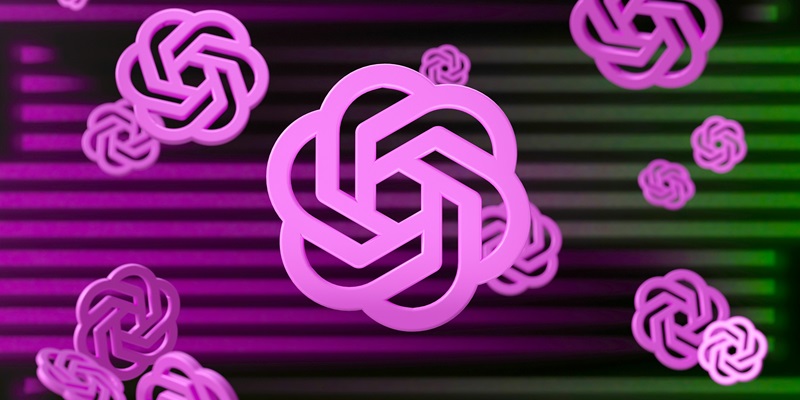OpenAI, the renowned artificial intelligence research organization, has introduced a groundbreaking technology known as Generative Pre-trained Transformers (GPTs), which allows individuals to build their own conversational AI systems. These AI models have the potential to revolutionize the way we interact with technology and provide numerous opportunities for customization without requiring coding experience.
Introduction to OpenAI’s GPTs and their capabilities
GPTs are advanced language models trained on a vast corpus of text data, enabling them to generate human-like responses and engage in meaningful conversations. They have been widely praised for their ability to understand and generate coherent text, making them a powerful tool for a diverse range of applications.
The customization and accessibility of GPTs for non-coders
One of the most remarkable aspects of GPTs is their accessibility to individuals without coding experience. OpenAI has developed user-friendly interfaces and tools that simplify the process of customizing GPTs for specific purposes. This democratization of AI technology opens up tremendous possibilities for individuals across various industries to leverage the power of conversational AI.
The upcoming launch of the GPT Store for distribution and monetization
To streamline the distribution and monetization of GPTs, OpenAI is set to launch the GPT Store. This marketplace will enable developers to share their customized GPT models with others while also providing an avenue for monetization. It aims to create a vibrant ecosystem in which developers, businesses, and end-users can benefit from the extensive capabilities of GPTs.
The potential for users to earn money from their GPTs
In a groundbreaking move, the GPT Store will allow users to earn money based on the usage of their GPT models. Developers who create highly useful and sought-after GPTs can generate a significant income stream through the platform. This incentivizes the creation of valuable and innovative conversational AI systems, ensuring that the GPT Store remains populated with high-quality offerings.
OpenAI’s goal of replicating the successful App Store model
OpenAI aspires to replicate the success of platforms like Apple’s App Store by establishing the GPT Store as the go-to marketplace for GPT models. By providing a central hub for developers and users alike, OpenAI aims to foster a thriving community and facilitate the discovery of the most useful and effective GPT models for a wide range of applications.
The evolving strategy for monetization and pricing of GPTs
The monetization and pricing strategy for GPTs in the GPT Store will evolve over time. OpenAI recognizes the need to strike a balance between reasonable pricing for developers and affordability for users. Collaborative efforts and feedback from the community will play a crucial role in shaping a fair and sustainable pricing model for GPTs.
The role of verified builders in populating the GPT Store
To ensure the quality and credibility of GPT models in the marketplace, OpenAI plans to start the GPT Store with verified builders. These accredited developers will populate the store with official applications, thereby setting a standard for excellence and reliability. As the GPT Store expands, more developers will be given the opportunity to showcase their creations.
Potential competition with industry giants like Apple and Microsoft
While OpenAI’s move to establish itself as a platform marks a significant step forward, it may also lead to potential competition with industry giants like Apple and Microsoft. As both companies have made strides in the field of conversational AI and natural language processing, their existing platforms, such as Siri and Microsoft’s Copilot, may compete with OpenAI’s GPTs for dominance in the market.
Comparison of OpenAI’s GPTs with Microsoft’s Copilot models in enterprise tasks
Specifically, Microsoft’s Copilot models, which aim to assist developers in writing code, may compete with OpenAI’s GPTs in enterprise-level tasks. While OpenAI’s focus on building conversational AI systems is distinct, there may be instances where the capabilities of these models overlap. This competition promises to drive innovation and further enhance the field of conversational AI.
Anticipated updates and developments in the GPT Store announced during OpenAI’s developer day
OpenAI is committed to continuous improvement and innovation in the GPT Store. During their developer day event, OpenAI is expected to announce exciting updates, enhancements, and new features for the GPT Store, taking user feedback and community suggestions into account. These developments will shape the future of the GPT Store and consolidate OpenAI’s position as a leader in the conversational AI space.
In conclusion, OpenAI’s introduction of GPTs and the upcoming launch of the GPT Store represents a significant milestone in the development and distribution of conversational AI systems. The GPT Store’s potential for customization, monetization, and user-driven innovation has the power to redefine how organizations and individuals interact with AI technology. As the industry continues to evolve, OpenAI’s GPT Store will likely shape the landscape of the conversational AI market in profound ways.

